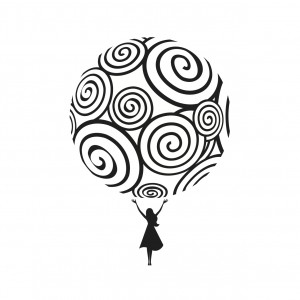 It’s the season for baby birds to fall out of nests. On Saturday afternoon, one fell out of the big maple tree in our front yard, right into a patch of creeping jenny. I was outside with my kids when we discovered it, its tiny mouth growing bigger than its body when it squawked. Its wing was messed up, and the poor thing wasn’t in good shape.
It’s the season for baby birds to fall out of nests. On Saturday afternoon, one fell out of the big maple tree in our front yard, right into a patch of creeping jenny. I was outside with my kids when we discovered it, its tiny mouth growing bigger than its body when it squawked. Its wing was messed up, and the poor thing wasn’t in good shape.“Can we help it?” my almost-7-year-old son, Max, asked.
“Not really. I’m sorry, buddy. Maybe the momma bird will come back for it,” I said, knowing full well the bird was going to die in my creeping jenny.
My little 4-year-old, Georgia, started talking to it: “Oh, baby bird. You’re going to be okay.”
“I’m getting a worm for it!” Max said. “And let’s give it water.”
“It won’t help. There’s nothing we can do. I know it stinks. I’m so sorry.”
“Will it stay here overnight?” Georgia asked.
“Yes,” I said.
“Will it die?” Max asked.
“Yes,” I said. “It will. I’m sorry. I’m really, really sorry.”
They didn’t cry, but it was like I had punched them in the gut. I believe that when it comes to this stuff, the truth—told with love—is better than a lie. Still, stories about things you can’t change are hard to tell, to yourself—and to little faces.
They kept asking about the bird all afternoon, going out to check on him. It broke my heart each time. I considered letting my inside cat outside to put the bird out of its misery. “Please, little bird, let go,” I kept saying inside my head.
Just before dinner, I had to run to the hardware store to grab some screen for a planter I was making. I walked in and was ambushed with the smell of my dad—that smell of sawdust and tools and basement workshops. It was all I could do to get back to the car with my tiny piece of screen without breaking down.
“Damn you, baby bird,” I muttered as I started my engine.
Like I said, stories about things you can’t change are the hardest to tell.
Stories About What You CAN Change
To be satisfying, a story needs a hero, a problem, and a resolution. Stories about things you can’t change only have one of those elements: the problem. They also tend to be invasive. Like my cinnamon ferns that spread through a garden by underground runner, these hero-less, resolution-less stories spread willy-nilly around a brain—and fast. I swear, that baby bird was everywhere in my head that night. I took a bike ride with my son, and couldn’t stop noticing all the old houses getting torn down in my neighborhood to make way for new ones. I can’t stop progress, I thought. My kids misbehaved on the playground, failing to listen to my husband or me. We have no influence over them, I thought. Later that night, I pulled out the draft of the young adult novel I’m slowly revising. This is quite possibly the worst shit ever; I’ll never be a legitimate fiction writer, I thought.
How do you tell an honest story about something you can’t change (yes, the baby bird is going to die), and not let it invade everything else?
By balancing it with stories about what you CAN change—or what you intend to change. To appreciate our place in the universe, human beings need both kinds of stories: the ones where we are not the center of everything and can’t solve the problem . . . and the ones where we are the center of everything and can solve the problem.
The latter are the stories we use to sell things and ideas. The stories of inspiration and aspiration, full of capable heroes eager to tackle problems—underdogs, outsiders, fighters, sages, the brave and the scared, the willing and the unlikely. Sometimes, we see ourselves in the story. Sometimes, it is our story. I love these stories. I love writing them, living them, developing them, hearing them, and believing in them.
By Sunday morning, the little bird had passed on to wherever little birds go. I scooped him up with a gloved hand. I considered calling the kids out and having a little ceremony of burying him. But they had had enough of a story they couldn’t change. They were inside, full of happier stories and I didn’t want to ruin it. “I’m sorry for all of it, baby bird,” I said and gently placed him in our trash.
Then I went inside and picked up my novel again. I filed through all of the stories at my disposal: ah yes, the underdog story. Copywriter from nowhere makes brilliant debut as young adult novelist . . .
I can’t change the fact that baby birds will fall out of trees or that parents will get sick. But the wellspring of stories about what I intend to change? That’s the fuel. That’s what creates the shape of life.

